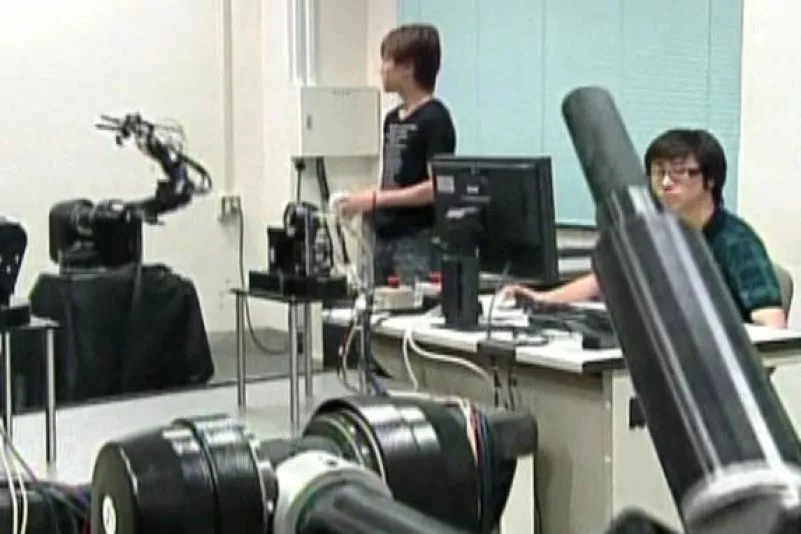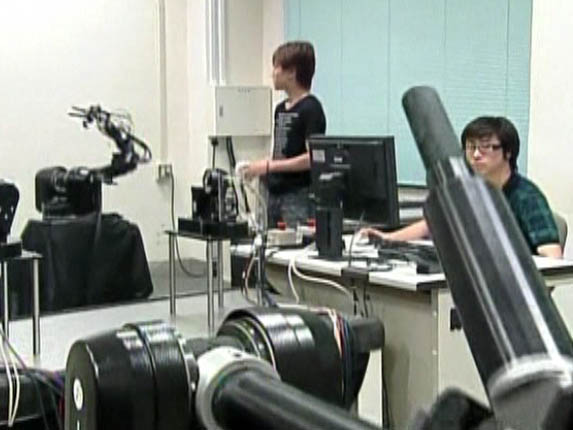NTDTV
Japanese Baseball Robots

Foto: NTDTV
Japan is mixing its passion for baseball with a love of robots, creating a field of A.I. dreams.
Researchers at Tokyo University recently developed robots that look to replicate the pitching and batting prowess of stars like Daisuke Matsuzaka and Ichiro Suzuki.
With a fast-moving arm and three flexible fingers, the robot doesn’t have the Boston Red Sox pitcher’s speed yet at just 60 kms an hour, as researcher Taku Seno says it was designed to throw without hurting anyone in a small lab room.
[Taku Seno, Research Fellow]:
„The robot used to throw balls like a beginning pitcher, like a child would throw without much coordination. It was very difficult for us to make the robot throw like a baseball player. With each movement having the joints in coordination to maximize speed to its fingertips.“
„The robot used to throw balls like a beginning pitcher, like a child would throw without much coordination. It was very difficult for us to make the robot throw like a baseball player. With each movement having the joints in coordination to maximize speed to its fingertips.“
Its three fingers are designed to open and close at least 10 times per second, meaning no knuckleballs yet.
The batting robot takes just fractions of a second with the assistance of an eye sensor that processes a thousand pictures per second.
[Taku Seno, Research Fellow]:
„We wanted to create a robot that can move very fast unlike other robots, so we worked on accelerating the motor as well as the eye sensor movement, which is the core part of the robots.“
„We wanted to create a robot that can move very fast unlike other robots, so we worked on accelerating the motor as well as the eye sensor movement, which is the core part of the robots.“
The sensor chases, detects and reads ball movement, sending a signal to the robot faster than a human, a skill that batting star Ichiro would definitely appreciate.
 (NTDTV)
(NTDTV)Kommentare
Noch keine Kommentare – schreiben Sie den ersten Kommentar zu diesem Artikel.
0
Kommentare
Noch keine Kommentare – schreiben Sie den ersten Kommentar zu diesem Artikel.





